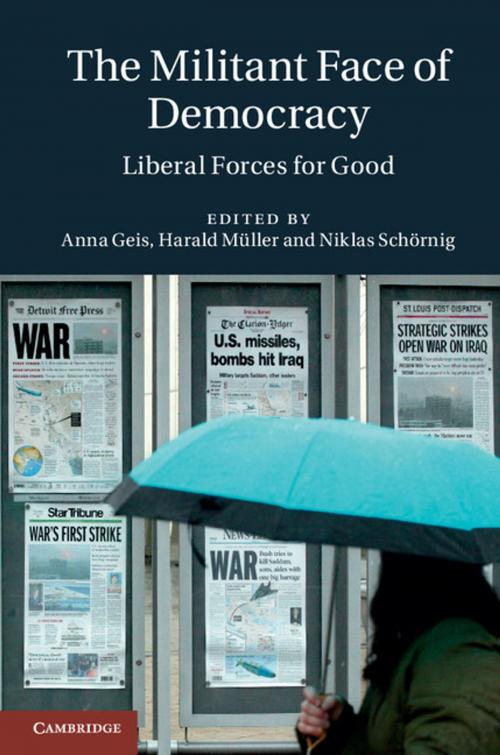The Militant Face of Democracy
Liberal Forces for Good
Nonfiction, Social & Cultural Studies, Political Science, Government, Democracy, International, International Relations| Author: | ISBN: | 9781107424593 | |
| Publisher: | Cambridge University Press | Publication: | October 10, 2013 |
| Imprint: | Cambridge University Press | Language: | English |
| Author: | |
| ISBN: | 9781107424593 |
| Publisher: | Cambridge University Press |
| Publication: | October 10, 2013 |
| Imprint: | Cambridge University Press |
| Language: | English |
Democratic peace theory - the argument that democracies very rarely go to war with each other - has come under attack recently for being too naïve and for neglecting the vast amount of wars fought by democracies, especially since the end of the Cold War. This volume offers a fresh perspective by arguing that the same norms that are responsible for the democratic peace can be argued to be responsible for democratic war-proneness. The authors show that democratic norms, which are usually understood to cause peaceful behaviour, are heavily contested when dealing with a non-democratic other. The book thus integrates democratic peace and democratic war into one consistent theoretical perspective, emphasising the impact of national identity. The book concludes by arguing that all democracies have a 'weak spot' where they would be willing to engage militarily.
Democratic peace theory - the argument that democracies very rarely go to war with each other - has come under attack recently for being too naïve and for neglecting the vast amount of wars fought by democracies, especially since the end of the Cold War. This volume offers a fresh perspective by arguing that the same norms that are responsible for the democratic peace can be argued to be responsible for democratic war-proneness. The authors show that democratic norms, which are usually understood to cause peaceful behaviour, are heavily contested when dealing with a non-democratic other. The book thus integrates democratic peace and democratic war into one consistent theoretical perspective, emphasising the impact of national identity. The book concludes by arguing that all democracies have a 'weak spot' where they would be willing to engage militarily.















